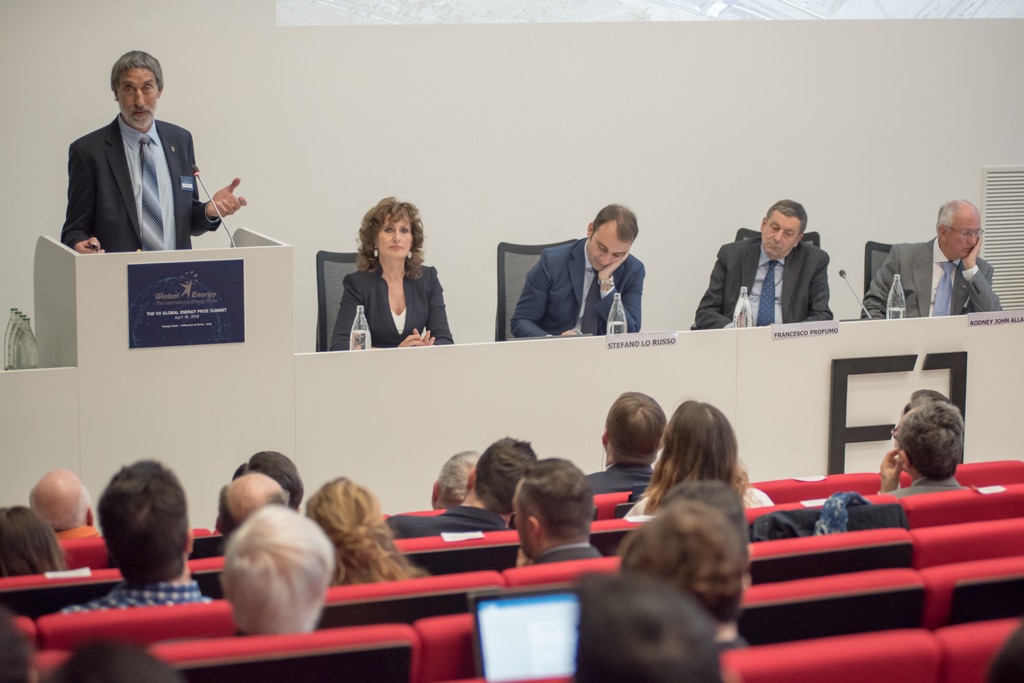by Tom Blees
SCGI was represented in an energy summit in Turin, Italy in mid-April by Tom Blees, president of SCGI. Russia’s Global Energy Prize organization invited members of the selection committee (those who decide who wins the annual honor for energy research) to participate in discussing the future of energy systems. Tom and Rodney Allam, the British chairman of the committee (himself  an energy prize laureate), were asked to speak on the topic of the transition from fossil fuels to clean energy sources.
an energy prize laureate), were asked to speak on the topic of the transition from fossil fuels to clean energy sources.
This topic is of special interest to countries like Russia that have economies heavily dependent on fossil fuels. The same situation applies in many countries in the Middle East, as well as Venezuela, Kazakhstan, and others. As much as one might expect such countries to wish to deny the gradual evolution away from fossil fuels, at least some of them (Russia, Saudi Arabia, and the United Arab Emirates, to name a few) recognize that technological advances in electric vehicles portend a steep decline in demand for oil. Russia has responded by becoming the most aggressive marketer of nuclear power systems around the world. The Saudis and the UAE have dedicated vast sums to post-oil-era funds to determine what technologies and industries to invest in that can keep their economies vital as fossil fuel demand diminishes.
It’s abundantly clear that climate change politics are contributing mightily to this transition. The tribal politics of the United States that has one party stubbornly denying that climate change is even an issue, is in stark contrast to the global perspective, where there is overwhelming consensus on the nature of the challenge. The question is not whether something must be done soon to counter the effects of climate change but what steps individual countries will take to deal with their own greenhouse gas emissions. The Turin summit provided an opportunity to discuss the issue from the perspectives of various countries. Global Energy Prize committee members participating in the summit hail from Germany, Hungary, South Korea, Britain, the UAE, USA, etc., so the summit attendees (including many college students) were able to consider the questions from a variety of viewpoints.
As with most such conferences, discussions outside the program agenda were interesting and fruitful. Blees’s presentation included a description about the expected deployment of ship-borne high-capacity nuclear power plants, which engendered a great deal of inquiry, both in subsequent press interviews and from a number of attendees. One especially interested party was the president of an Italy-based NGO called Geoprogress, an organization focused on development in Africa. The potential for jump-starting developing countries by utilizing power ships—allowing nations with little capital to completely avoid the expense of building their own power plants—can be a key to a rapid rise in standards of living in many areas of Africa and Asia. SCGI has been active in facilitating connections between various organizations, government bodies, and individuals pursuing such development. The excited response at events like the Turin energy summit confirm the importance of such efforts, and provide fresh incentive to remain at the forefront of technological evolution that can make a real impact in the near future.
